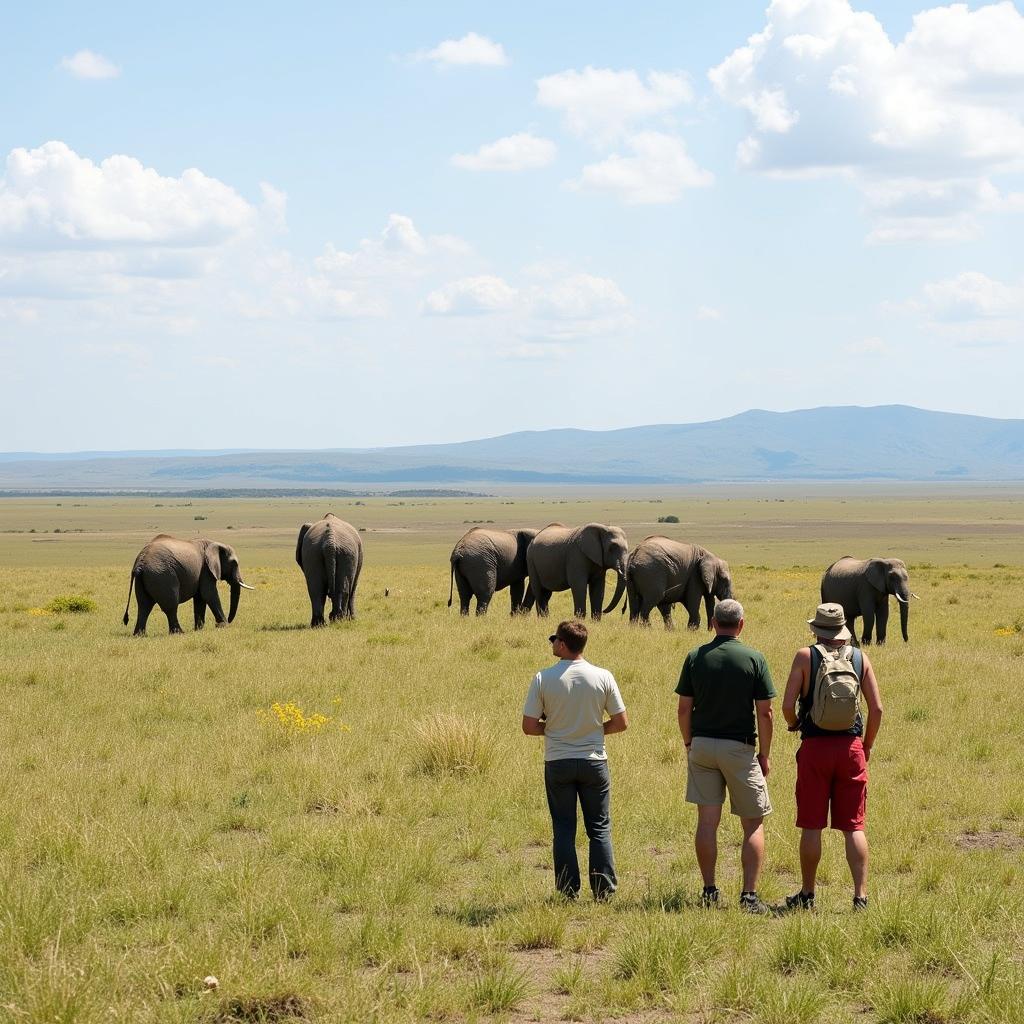Unraveling the Mysteries of the African Hyena
The African Hyena, often misunderstood and vilified, is a fascinating and crucial component of the African ecosystem. These intelligent and highly social animals play a vital role in maintaining the delicate balance of nature. Contrary to popular belief, they are much more than just scavengers. Let’s delve into the captivating world of these often-misunderstood creatures.
Debunking the Myths: The True Nature of the African Hyena
There’s a common misconception that African hyenas are solely scavengers, cowardly lurking in the shadows. However, the truth is far more complex. While they are opportunistic feeders and will readily consume carrion, African hyenas are also skilled hunters, often taking down prey much larger than themselves. Their powerful jaws and digestive systems allow them to consume almost every part of their kill, including bones and hooves, playing a crucial role in nutrient recycling. African hyenas exhibit remarkable social intelligence, living in complex matriarchal societies known as clans. These clans have intricate hierarchies and communication systems, showcasing a level of social complexity rarely seen in the animal kingdom.
Types of African Hyenas: Spotted, Striped, and Brown
There are four species of hyena found worldwide, but only three call Africa home: the spotted, striped, and brown hyena. The spotted hyena is the most common and largest of the three, renowned for its distinctive spotted coat and high-pitched whooping calls. Striped hyenas, smaller and more solitary, are characterized by their striped fur and mane that runs down their back. Brown hyenas, the rarest of the African species, are characterized by their shaggy, brown coat and tend to be more coastal. Each species occupies a slightly different niche within the African ecosystem, minimizing competition and ensuring the survival of all.
What Does an African Hyena Eat? A Diverse Diet
What do African hyenas eat? Their diet is remarkably diverse. As mentioned earlier, they are skilled hunters, preying on animals such as zebras, wildebeest, and even young elephants. Their powerful jaws and collaborative hunting strategies allow them to bring down large prey. They are also opportunistic scavengers, playing a vital role in cleaning up carcasses and preventing the spread of disease. This adaptable diet contributes to their success in various habitats across the African continent.
The Social Life of African Hyenas: A Complex Society
The social structure of African hyenas is truly remarkable. Their matriarchal clans can number up to 80 individuals, with females holding the dominant positions. Within the clan, there’s a complex hierarchy, with each individual having a specific rank. This social order influences access to food and mating opportunities. Communication plays a crucial role in maintaining these complex societies, with a range of vocalizations, body postures, and scent marking used to convey information and maintain social bonds.
african hyena offspring livescience
The African Hyena’s Role in the Ecosystem
African hyenas are keystone species, meaning their presence has a significant impact on the overall health and stability of the ecosystem. By controlling prey populations and scavenging carcasses, they help maintain a balance within the food web. Their role in nutrient recycling is also vital, enriching the soil and supporting plant growth. Understanding the importance of these animals is crucial for conservation efforts and ensuring the long-term health of African ecosystems.
African Hyena vs. Other Predators
How do African hyenas fare against other African predators? Competition is fierce in the African wilderness, and hyenas often clash with lions, leopards, and wild dogs over territory and food resources. These interactions can be dramatic and often result in violent confrontations. While lions are typically the apex predator, hyenas, with their strength in numbers and powerful jaws, can often hold their own.
Conclusion: Appreciating the African Hyena
The African hyena, far from the negative stereotypes, is a fascinating and essential creature. These intelligent and adaptable animals play a critical role in maintaining the delicate balance of the African ecosystem. By understanding their true nature, we can appreciate their importance and work towards their conservation.
FAQ
- Are African hyenas dogs? No, despite their dog-like appearance, they are more closely related to cats.
- What is the lifespan of an African hyena? In the wild, they can live up to 25 years.
- How do African hyenas communicate? They use a variety of vocalizations, including whoops, growls, and giggles, as well as body language and scent marking.
- Where do African hyenas live? They are found throughout sub-Saharan Africa in a variety of habitats.
- Why are African hyenas important to the ecosystem? They are keystone species, playing a vital role in controlling prey populations and scavenging carcasses.
- What are the main threats to African hyenas? Habitat loss, human-wildlife conflict, and disease are the primary threats.
- How can I help protect African hyenas? Supporting conservation organizations and educating others about their importance are crucial steps.
Are you curious about other fascinating creatures found across the continent? Check out our article on African Animals Names. You might also be interested in learning more about the powerful African Buffalo South.
Need assistance? Contact us 24/7: Phone: +255768904061, Email: kaka.mag@gmail.com, or visit us at Mbarali DC Mawindi, Kangaga, Tanzania. Our customer care team is ready to help.


